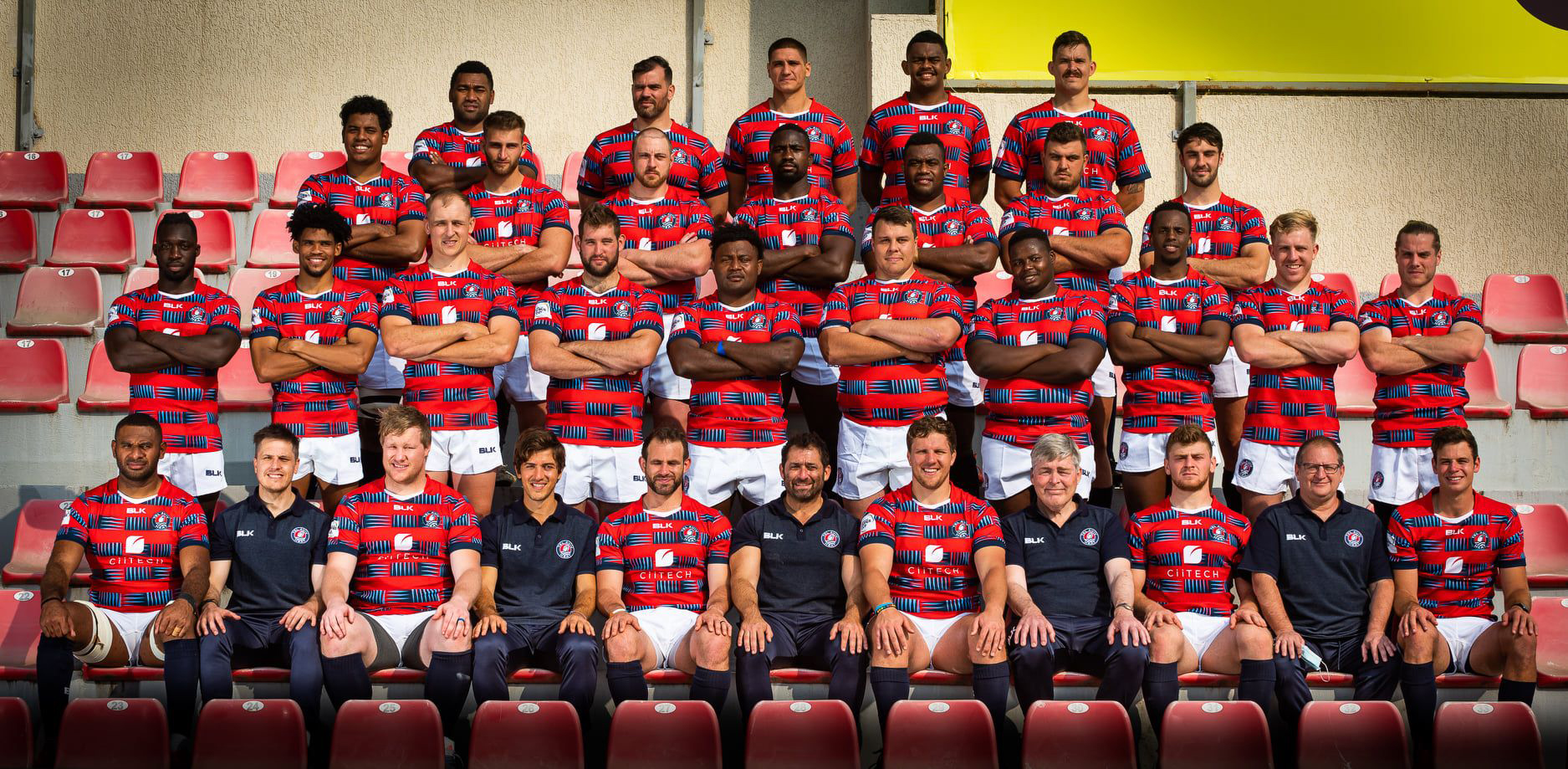
News

SARU called to account for banning of Israeli rugby team
Published
1 year agoon
By
Nicola MiltzAngry individuals and organisations locally and abroad are demanding answers from the South African Rugby Union (SARU) and other stakeholders over its decision to disinvite an Israeli rugby team from competing in an upcoming tournament.
The Tel Aviv Heat had been invited by SARU to take part in the Mzansi Challenge next month, but was given the boot over alleged security concerns. It’s a team comprised of players from a host of nations, including numerous South African players and less than a handful of Israeli players. The team is also a member of World Rugby and the International Olympic Committee.
According to SA Rugby President Mark Alexander, security threats were the main reason for the organisation rescinding its invitation to Israel’s rugby team, and the decision was taken following “representations from multiple stakeholders”. There were also alleged “death threats” against members of SARU by anti-Israel lobbyists who also threatened to disrupt the tournament. The team’s withdrawal was announced on 3 February.
A New Zealand high court barrister, Ian Dunwoodie, has filed a formal complaint with World Rugby in his personal capacity. The SA Jewish Report has formally requested information about the decision in terms of Section 53 of the Promotion of Access to Information Act (PAIA). The South African Friends of Israel (SAFI) has also written to SARU requesting the meeting minutes and names of stakeholders that were consulted by SARU in making its decision. Failure to provide these details timeously would result in SAFI also submitting a PAIA application later this week, according to its spokesperson, Pamela Ngubane.
Too many questions remain unanswered about this hasty decision that has left a team of players, their management, and staff nonplussed.
Which stakeholders were consulted? According to the Tel Aviv Heat, the first professional Israeli rugby union team, the decision took them by surprise. They said neither them, the Israeli Rugby Union, nor the Israeli embassy in South Africa were consulted prior to the decision. Which organisations and people were present when the decision was made, and on what grounds was it taken? Who or what was behind it? Also, where did the alleged threats emanate from?
These are some of the questions the SA Jewish Report and many others would like answered.
With its request for information, the SA Jewish Report wants to obtain:
- all records of interactions by SARU with stakeholders and others relating to the decision to withdraw the team;
- records of all communication with government departments or government representatives relating to the decision;
- minutes of all meetings relating to the decision;
- records of communication where threats were made relating to the inclusion of the team; and
- police case numbers relating to the threats.
The department of sport, arts and culture said it supported SARU’s decision “to ensure a safe environment for its tournaments”.
The ruling African National Congress (ANC) also expressed its support for the decision, and said, “We hope this decision will serve as a reminder to Israel that its illegal occupation of Palestinian land is an injustice that shouldn’t be tolerated.”
Dunwoodie, a rugby enthusiast, claimed that SARU’s decision allegedly amounted to “multiple breaches” of World Rugby rules and regulations, and has called for an enquiry and an investigation into SARU’s conduct.
SARU didn’t provide substantive reasons for withdrawing the invitation, Dunwoodie said. Nor did it consult with the Israel Rugby Union before withdrawing the invitation or withdraw any of the invitations to the 10 other teams it had invited. According to his legal submission, the conduct of SARU appears to breach the World Rugby’s constitution. It seemed clear that rule three, which forbids discrimination in general, and rule four, which forbids discrimination against the rugby union of a country, had been broken, he said.
Dunwoodie submitted that SARU had discriminated against a member union and had hurt and prejudiced the game of rugby.
In an interview with Rugby365, Dunwoodie said that if the reasons for the withdrawal were on the grounds of safety, he would encourage Alexander to release the threat assessment report that was presumably compiled by SARU.
“This report would no doubt have been made in consultation with security professionals and the South African Police Service. The report would surely set out the nature of those threats. It would be sad and somewhat embarrassing if he capitulated because of a few rumours and an angry phone call.”
Given the response to the alleged threats, “Is SARU actually saying that South Africa is no longer a safe venue for international sporting events?” Dunwoodie asked, implying that this could have an impact on the hosting of future international tournaments.
SAFI said in a statement, “Over the past week, statements slamming SARU’s decision were made public by Stand With Us, the Africa Christian Democratic Party, the Freedom Front+, the South African Jewish Board of Deputies, the South African Zionist Federation [SAZF], and rugby legend Joel Stransky.”
Ngubane said SAFI had asked that SARU list the names of the stakeholders that were consulted, “to ascertain which voices were afforded an undue influence in our country’s sporting fixtures and affairs”.
Following the ANC’s press statement commending SARU’s decision, SAFI said it remained concerned that political interference and alleged death threats from the anti-Israel lobby may have contributed to the decision-making process. She said it was “sad” that Israel was being treated in this manner by a South African sporting entity.
“South African musicians, models, and comedians are always welcomed to expand and promote their careers with visits to adoring fans in Israel. We shouldn’t hesitate to welcome their players over to sunny South Africa for a rugby match as well. Discrimination on any basis must not be tolerated in South African sporting fixtures and events,” she said.
The SAZF said a number of South African stakeholders including some political parties had voiced their “unequivocal opposition to this degree of discrimination in South African sport”.
It said it supported SAFI in its move to submit a PAIA application to ascertain which stakeholders were consulted in the decision-making process.
“The SAZF is grateful to see the public support that has been mobilised to address this issue in South African sport. SAFI’s move to submit a PAIA application will help provide us all with an indication of who was involved in this decision-making process and if SARU allowed ANC politics and the antisemitic BDS [Boycott, Divestment, Sanctions] agenda to define who is welcome to participate in sporting events in our beautiful country.”
Photo credit: Daniel Halac











Jessica
Feb 17, 2023 at 10:51 am
It’s now official: SARU has been weaponized into an activist arm of the ANC’s BDS cabal. SARU = BDS doublespeak for ‘South Afican Radicalized Usurpers’ of rugby.